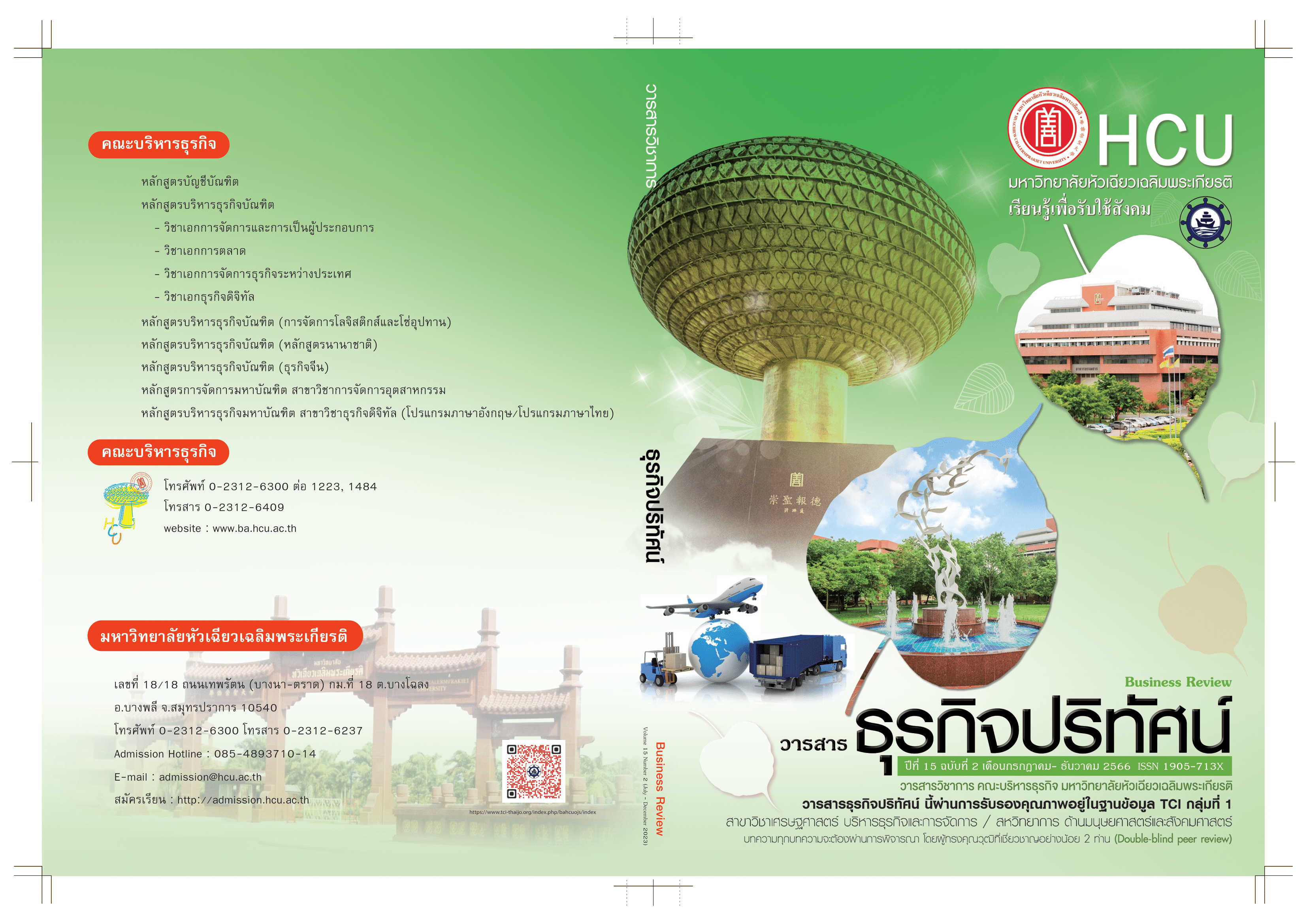Effects of Marketization and Corporate Social Responsibility on Brand Value
Keywords:
Marketization Degree, CSR, Brand Value, Internal ControlAbstract
This paper introduces the system theory and other theoretical perspectives to study the relationship between marketization degree, corporate social responsibility and brand value. This paper uses empirical research method, introduces institutional theory and other theories to make research hypothesis, selects data of A-share listed companies in the List of "China's 500 Most Valuable Brands" of the World Brand Laboratory from 2009 to 2018, and conducts empirical analysis on the hypothesis using STATA15.0 software.
The results show that the degree of marketization has a positive promotion effect on brand value through corporate social responsibility, and internal control has a negative adjustment effect on the promotion effect of corporate social responsibility on brand value. This paper forms the research path of "marketization degree -- Corporate social responsibility -- brand value", which enriches the research in the field of system theory and so on.
References
陈红,纳超洪,雨田木子,韩翔飞.(2018).内部控制与研发补贴绩效研究.管理世界,34(12):149-164
池国华,郭芮佳,王会金.(2019).政府审计能促进内部控制制度的完善吗——基于中央企业控股上市公司的实证分析.南开管理评论,22(01):31-41.
何宜庆,万珍,李政通.(2018).企业负债、社会责任与公司经营绩效——基于规模、资产与股权结构的解释.财会月刊,(06):3-10.
贺小刚.(2002).企业持续竞争优势的资源观阐释.南开管理评论,(04):32-37.
姜涛,杨明轩,王晗.(2019).制度环境、二代涉入与目标二元性——来自中国家族上市公司的证据.南开管理评论,22(04):135-147.
金建江.(2007).从利益相关者视角解读企业社会责任.财经科学,(11):98-105.。
康益敏,朱先奇,李雪莲.(2020).企业社会责任对医药企业创新绩效影响的实证研究——动态能力的中介作用.科技进步与对策,37(11):109-116.
李酣.(2015).市场竞争有助于提升我国产品质量的消费者评价吗——来自产业和区域调查的证据.华中科技大学学报(社会科学版), 29(05):97-104.
李园园,李桂华,张会龙.(2019).企业社会责任、技术创新与品牌价值.中国科技论坛,(03):71-79.
刘放,杨筝,杨曦.( 2016).制度环境、税收激励与企业创新投入.管理评论,28(02):61-73.
刘建秋,盛梦雅.(2017)战略性社会责任与企业可持续竞争优势.经济与管理评论,33(01):36-49.
刘宗华,李燕萍,郑馨怡.(2017).企业社会责任、员工—企业认同和员工绩效的关系.浙江工商大学学报,(01):103-113.
逯东,朱丽.(2018).市场化程度、战略性新兴产业政策与企业创新.产业经济研究,(02):65-77.
吕朝凤&朱丹丹.(2016).市场化改革如何影响长期经济增长?——基于市场潜力视角的分析.管理世界,(02):32-44.
王分棉,刘勇.(2013).中国品牌成长的区域性差异及其影响因素研究——基于《中国500最具价值品牌》的实证分析.中央财经大学学报,(06):80-85+90.
王军,郑玲,江若尘.(2016).民营企业慈善捐赠与财务绩效的因果关系研究——基于政治关联性与市场化程度调节效应的分析.山西财经大学学报,38(11):103-114.
王小鲁,樊纲&胡李鹏.(2019).中国分省份市场化指数报告(2018).北京:社会科学文献出版社.
许瑜,冯均科.(2017).内部控制、高管激励与创新绩效——基于内部控制有效性的实证研究.软科学,31(02):79-82.
杨皖苏,杨善林.(2016).中国情境下企业社会责任与财务绩效关系的实证研究——基于大、中小型上市公司的对比分析.中国管理科学,24(01):143-150.
伊力奇,李涛,张婷,李昂.(2020).国有企业高管权力、内部控制与社会责任.软科学:1-9
张霖琳,刘峰,蔡贵龙.(2015).监管独立性、市场化程度与国企高管晋升机制的执行效果——基于2003~2012年国企高管职位变更的数据.管理世界,(10):117-131+187-188.
张攀,吴建南.(2017).政府干预、资源诅咒与区域创新——基于中国大陆省级面板数据的实证研究.科研管理, 38(01):62-69.
赵云辉,张哲,冯泰文,陶克涛.(2019).大数据发展、制度环境与政府治理效率.管理世界,35(11):119-132.
周绍妮,王中超,张红芳.(2020).民营参股、市场化进程与国企市场竞争力.北京交通大学学报(社会科学版):1-10
朱明秀,邵京京.(2019).高管过度自信、董事会独立性与企业社会责.财会通讯,(27):91-95.
Aaker, D. A. (1996). Measuring brand equity across products and markets. California Management Review, 38(3), 102-120.
Carroll, A. B. (1979). A three-dimensional conceptual model of corporate performance. Academy of management review, 4(4), 497-505.
Coluccia, D., Fontana, S., & Solimene, S. (2018). Does institutional context affect CSR disclosure? A study on Eurostoxx 50. Sustainability, 10(8), 2823.
Diallo, M. F., Mouelhi, N. B. D., Gadekar, M., & Schill, M. (2020). CSR Actions, Brand Value, and Willingness to Pay a Premium Price for Luxury Brands: Does Long-Term Orientation Matter?. Journal of Business Ethics, 1-20.
Godos-Diez, J. L., Fernandez-Gago, R., & Martinez-Campillo, A. (2011). How Important Are CEOs to CSR Practices? An Analysis of the Mediating Effect of the Perceived Role of Ethics and Social Responsibility. Journal of Business Ethics, 98(4), 531-548.
Hall R.(1992).The strategic analysis of intangible reources.Strategic Management Handelman J M, Arnold S J. The Role of Marketing Actions with a Social Dimension: Appeals to the Institutional Environment. Journal of Marketing, 63(3):33-48.Journal.13(2):135-144
Hall, P. A., & Soskice, D. (2001). Varieties of capitalism: an introduction. Unpublished Manuscript, Cambridge, MA.
Harjoto, M. A., & Salas, J. (2017). Strategic and institutional sustainability: corporate social responsibility, brand value, and Interbrand listing. Journal of Product & Brand Management. 26(6),545-558
He, H. W., & Li, Y. (2011). CSR and Service Brand: The Mediating Effect of Brand Identification and Moderating Effect of Service Quality. Journal of Business Ethics, 100(4), 673-688.
Hur, W. M., Kim, H., & Woo, J. (2014). How CSR Leads to Corporate Brand Equity: Mediating Mechanisms of Corporate Brand Credibility and Reputation. Journal of Business Ethics, 125(1), 75-86.
Keller, K. L. (1993). Conceptualizing measuring,and managing customer-based-brand equity: Journal of Marketing, 57(1), 1-22.
Li, Y., & Mai, Y. Y. (2016). Advertising Expenditure, R&D Investment and Brand Equity of New Ventures. Journal of Industrial Engineering and Engineering Management, (3), 10.
Lin, M. S., & Chung, Y. K. (2019). Understanding the impacts of corporate social responsibility and brand attributes on brand equity in the restaurant industry. Tourism Economics, 25(4), 639-658.
Lliu, C. J., & Peng, Y. (2018). Institutional environment effect on Chinese corporate social responsibility performance: the influence of marketization, social capital and administrative supervision. Journal of Nanjing University of Finance and Economics, (1), 9.
Luo, X. R., Wang, D., & Zhang, J. (2017). Whose call to answer: Institutional complexity and firms’ CSR reporting. Academy of Management Journal, 60(1), 321-344.
Martínez, P., & Nishiyama, N. (2019). Enhancing customer-based brand equity through CSR in the hospitality sector. International Journal of Hospitality & Tourism Administration, 20(3), 329-353.
Peng, M. W., & Heath, P. S. (1996). The growth of the firm in planned economies in transition: Institutions, organizations, and strategic choice. Academy of management review, 21(2), 492-528.
Ramesh, K., Saha, R., Goswami, S., & Dahiya, R. (2019). Consumer's response to CSR activities: Mediating role of brand image and brand attitude. Corporate Social Responsibility and Environmental Management, 26(2), 377-387.
Salehzadeh, R., Pool, J. K., & Najafabadi, A. H. J. (2018). Exploring the relationship between corporate social responsibility, brand image and brand equity in Iranian banking industry. Journal of Islamic Accounting and Business Research, 9(2), 106-118
Turban, D. B., & Greening, D. W. (1997). Corporate social performance and organizational attractiveness to prospective employees. Academy of management journal, 40(3), 658-672.
Yang, J., & Basile, K. (2019). The impact of corporate social responsibility on brand equity. Marketing Intelligence & Planning. 37(1),2-17
Zheng, P., & Ren, C. (2019). Voluntary CSR disclosure, institutional environment, and independent audit demand. China Journal of Accounting Research, 12(4), 357-377.
Zhu, Y. (2013). The impact of top management team process on corporate social responsibility and firm performance. Frontiers of Business Research in China, 7(2), 268-288.
Downloads
Published
How to Cite
Issue
Section
License
Copyright (c) 2023 Business Review Journal

This work is licensed under a Creative Commons Attribution-NonCommercial-NoDerivatives 4.0 International License.
All articles published in the Business Administration and Management Journal Review are copyrighted by the journal.
The views and opinions expressed in each article are solely those of the individual authors and do not represent those of Huachiew Chalermprakiet University or any other faculty members. Each author is fully responsible for the content of their own article. Any errors or issues found are the sole responsibility of the respective author.




